What is the reality for HR staff?
With increasing awareness of mental health in the workplace has anyone taken the time to stop and ask the question, “What is the reality for HR staff”? HR can be a lonely profession. You know who is on a performance improvement plan and know whose jobs are about to be eliminated. You probably even know who is having an affair with whom however, there are few people you can share this information with.
The higher up you are in Human Resources, the lonelier it is. The more you know about the organisation and its future plans. The more prominent people you work with, the less likely it is that there is anyone to discuss these matters with. In fact, CEOs typically use their Senior HR Directors/Managers as their sounding boards about any and all talent issues in the organisation, from performance problems of staff, to succession planning and how to integrate or downsize. What can HR do when he or she would like a sounding board themselves?
Are we just adding to the HR task list?
In a recent article in People Management on 9th October 2019 http://bit.ly/2pKHjai it was interesting to note the opening line…’Experts call on HR to take responsibility for creating an environment where people can talk about issues’ Hmmn I thought! Another task being placed upon already over-burdened HR staff. The article headline was ‘Half of managers ‘consider mental health a liability’’ and continued ‘as employees continue to raise concerns that admitting mental health problems to their bosses could harm their careers.’ What is the reality for our HR staff?
My personal experience comes from over 20 years in the oil industry in my home city of Aberdeen, prior to creating P3 Business Care in 2018. Coined the ‘oil capital of Europe’ due to its proximity to the North Sea and the development of a massive oil industry since the late 60’s, the global oil sector downturn in the past three years has seen a massive loss of jobs. Some estimate job losses of 65,000 across the supply chain http://bit.ly/2MGDv2K although this figure would be considered conservative by some.
I have seen at first hand the challenge that this has placed on HR personnel. In some quarters HR was already seen as protecting the business rather than the employees and this experience has done nothing to alleviate that impression. However, personally it has only led to my recognition of the increasingly difficult position that HR have found themselves in. In some instances, having delivered the ‘bad news’ and dealt with the consequences, some have then found themselves out of a job!
In last month’s blog I queried the effectiveness of mental health first aid training. https://p3businesscare.com/blog/would-you-walk-by-someone-who-was-drowning/ I proposed that already busy managers were being asked to add another task to their never ending ‘to do’ list and that staff invariably includes HR.
Are HR staff somehow considered to be immune from mental health issues?
Again in People Management, on the 8th October 2019, an article cited that ‘Managers are more likely to have a diagnosed mental health problem than any other group of employees’. In a survey experts warned senior staff needed the time and the correct training to support colleagues’ wellbeing. http://bit.ly/2qESW2N
In the article Emma Mamo, head of workplace wellbeing at mental health charity Mind, said ‘Employers were increasingly striving to create a positive culture where staff felt able to talk openly about issues like stress and mental health. But she added: “It’s not just about talking – staff need to know that if they do disclose, they’ll be met with support and understanding, rather than facing stigma and discrimination.” Mamo said it was “worrying” that so few employees felt comfortable talking to their managers about their mental health and said it was “important we try to find out and overcome some of the barriers to having those conversations.’
Do we consider HR somehow to be immune from mental health challenges? Behind the brave face may be a totally different story and I know this from speaking to HR staff.
Are we asking too much of our HR staff?
I ask the question ‘what is the reality for HR staff’? in the hope it will lead to an open and honest conversation. How comfortable are HR in opening up about their own mental health challenges? How would this be viewed within the business and by employees? What is the reputational damage to a business who’s HR Manager goes off sick with stress? Does this add pressure on HR personnel to be ‘Superman‘ or ‘Wonder Woman’ or at least to present that persona?
A new international study into workplace mental health published this month reveals the extent to which workplace stigma around the topic is impacting both medical outcomes and employers’ bottom lines. The research exposes the true scale of mental health problems in the workplace, the magnitude of under reporting of mental health conditions, and what might be preventing people from seeking the support they need.
The study of 3,894 employees across four major international markets – the US, Canada, Australia and the UK – was conducted by Ipsos MORI http://bit.ly/2Waweeu
‘The research shows that 82% of employees who have had a mental health diagnosis have kept their difficulties hidden from workplace management, mainly because they feared a negative impact on their career (38%). When offered a range of reasons for not telling their employers, 22% worried that others’ professional opinion of them would be tarnished, with 21% saying they felt embarrassed, and 17% believing their capability at work would be questioned. Most concerningly, one in ten (10%) believed that confiding in someone at work about their poor mental health could lead to them losing their job.’
How can we help our HR staff?
HR can often be viewed, particularly with the dramatic increase in trying to address mental health issues, as being able to wave a magic wand! Somehow it’s their responsibility at the end of the day so they should be addressing it. In my experience HR practitioners just don’t have the time or capacity to ‘get involved’ in personal issues of employees, even if they wanted to. Like so may others, they are ‘fighting fires’ on an almost daily basis.
I created P3 Business Care to turn the traditional employee assistance programme on its head! To move from the reactionary, 0800 telephone number to a personal and proactive approach by visiting our clients twice weekly so we can develop trust and relationship and identify issues before they become absence or staff turnover. We are there for EVERY employee from CEO to receptionist and that includes HR!
Interestingly but perhaps not surprising, the recent Ipsos Mori survey found that, ‘Crucially, employees want a more frank and transparent approach in their workplace, with 50% agreeing that when executives and leaders talk openly about their mental health at work, it encourages them to feel more comfortable about their own mental health. Furthermore, nearly half of employees (45%) say they would be more likely to seek mental health support when they need it if there were to be more open conversations in their workplace on this topic.’
What’s the reality for HR staff? Does this strike a chord with anyone out there? Be great to get your feedback and if you want to speak in confidence, please get in touch.
About P3 Business Care
P3 Business Care is a Community Interest Company and social enterprise operating across the UK. Visiting your business on a weekly basis we provide personal and proactive support to your employees working in partnership with the company. We develop trust & relationships so we can identify and address issues before they become absence or staff turnover. Read more about our services here

